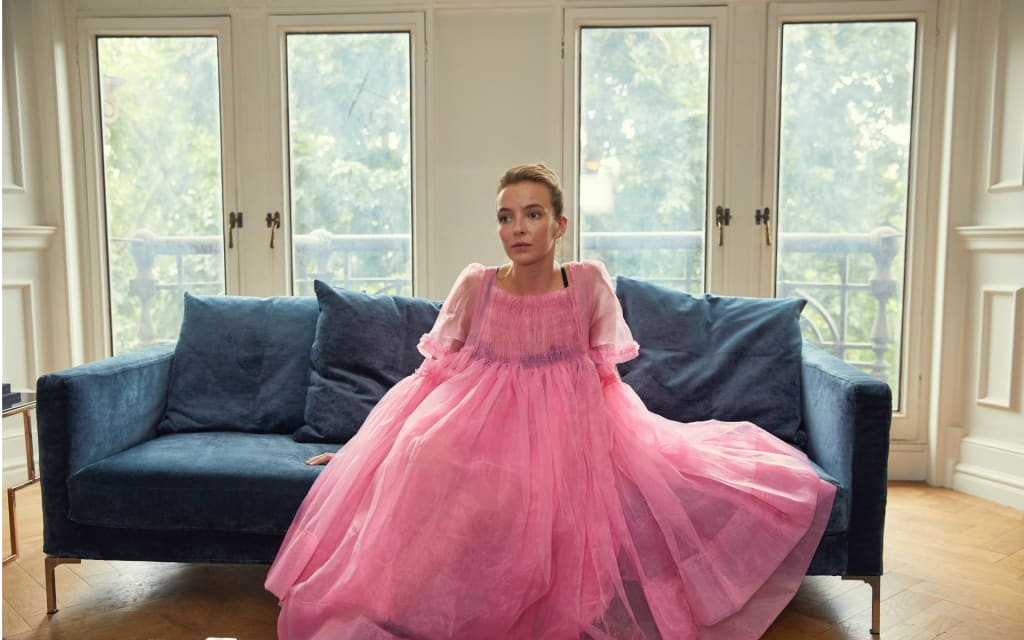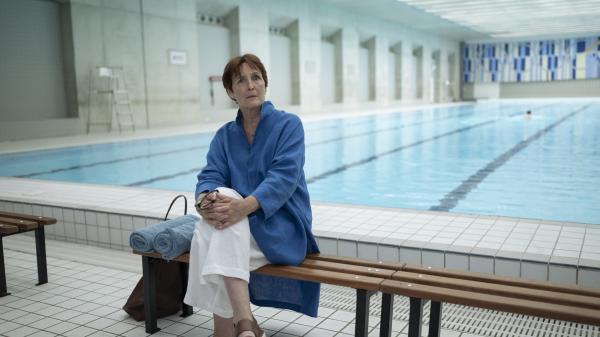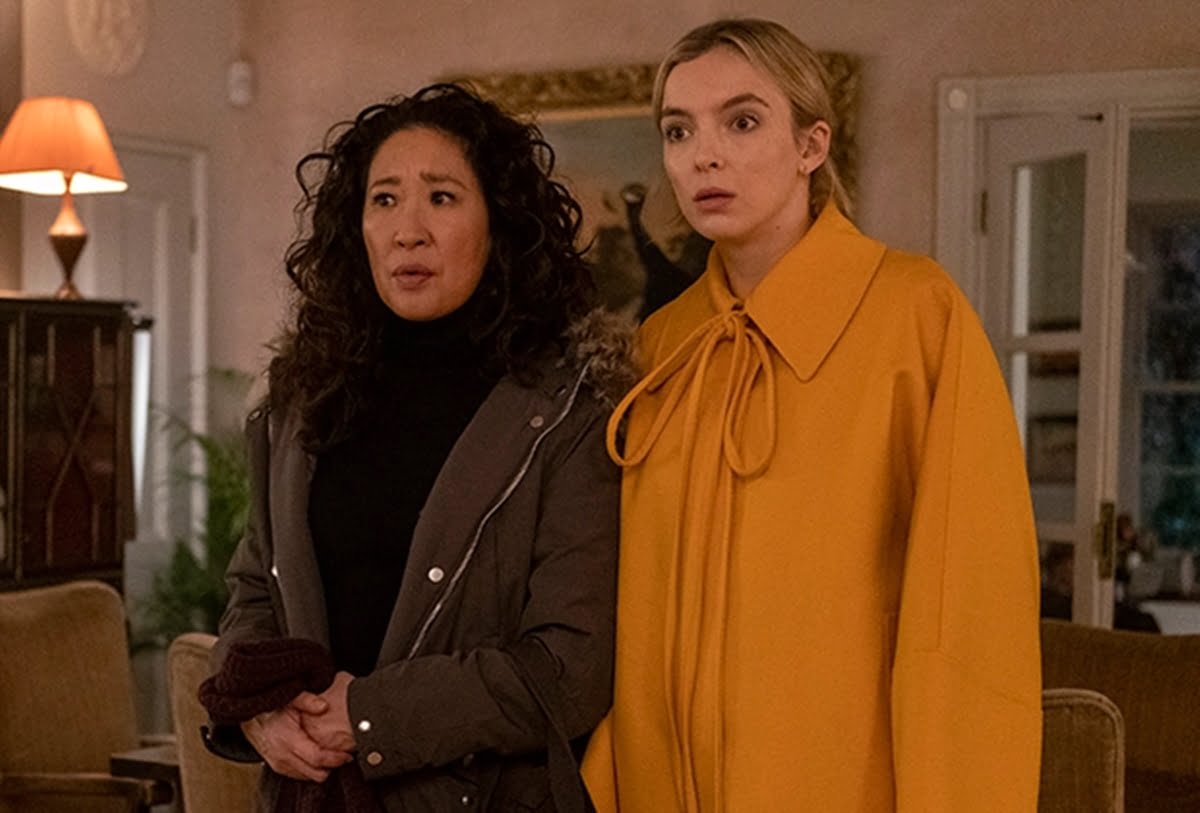When Killing Eve first kicked off in 2019, I was enamoured by the show. As I watch the new episodes today, I still find myself going back to our introduction of Villanelle. She is unassuming at first. Fair-skinned and put-together, the first thought I have is “Ugh, yet another femme fatalle”. But then, she does the most shocking thing. With careless abandon, she knocks over a child’s ice cream as she walks away. What clinches the scene is her smug smile. You know she enjoyed it, and that she wouldn’t have had it any other way. And here, I thought “Isn’t she she worried about people seeing this minor, yet atrocious action?” And that is why Villanelle is appealing. She doesn’t give a shit. I can’t quite relate to her, but I would like to be her. Or at least fantasise about being her.
Eve, on the other hand, I know. I am and have always been Eve in Season 1 of Killing Eve (minus the husband). Her unruly, hungover bed head and sullen face is one that I have sported to work many – a times (even easier now, with WFH). Even more relatable is the flash of doubt on her face as she considers sharing her opinions out loud amongst a group of senior MI6 investigators, who are mostly men (surprise, surprise). How many of us have felt the rage of having to work in environments that are hell-bent on infantilising us?
Over the first two seasons of Killing Eve, my curiosity about Villanelle played out on the screen through an equally curious (if not more) Eve, all the while swinging between “Of course, she cannot take part in this violence” and “But what if she did?”

Like any detective-perpetrator dynamic; there is a clear right and wrong that is established in the first episode of Killing Eve. Eve and Carolyn as MI6 investigators on the “right” side and Villanelle very clearly in the “wrong”. As the series progresses, these boxes fall apart. As Eve and Villanelle grapple with each other, they also grapple with their relationships with violence; and as they go along, we see more women around them engaging with, subjecting, witnessing and being subjected to violence. By the end of season 3, we see Carolyn and Irina (Konstantin’s petulant daughter) join the murder brigade for their own reasons.
Like any detective-perpetrator dynamic; there is a clear right and wrong that is established in the first episode of Killing Eve. Eve and Carolyn as MI6 investigators on the “right” side and Villanelle very clearly in the “wrong”. As the series progresses, these boxes fall apart. As Eve and Villanelle grapple with each other, they also grapple with their relationships with violence; and as they go along, we see more women around them engaging with, subjecting, witnessing and being subjected to violence. By the end of season 3, we see Carolyn and Irina (Konstantin’s petulant daughter) join the murder brigade for their own reasons.

The beauty of this show lies in the fact that none of these women are asking you to feel sorry for them: Even as we uncover Villanelle’s “tragic” childhood for a “good” reason to her penchant for killing, or as we watch Eve’s life be consumed by chaos, and even as we watch Carolyn’s son (and a beloved character) be murdered.
All through season 3 of Killing Eve, we see Eve, Villanelle and Carolyn unravel and confront the consequences of their actions.
Also read: Killing Eve Review: Subverting The Spy Thriller Genre
Villanelle’s kills are sloppier as she realises she no longer wants to be a puppet for the ominous Twelve and that she is unskilled for a less violent career. After being asked to “piss off forever” by her ex-husband Nico, Eve is couch-surfing and air drying her pits in public bathrooms as she comes to terms with the monster within. And as Carolyn fights for justice for her son, she is forced to see eye-to-eye with her grieving daughter and the fact that she might be responsible for her son’s death. By the end of the season, each character has to accept who they are. Monsters; messy women who are incapable of hiding their despicable, reckless sides as well as others. Nor do they want to.
But, has it really been empowering to watch women take part in and perpetuate a hyper-masculine and patriarchal structure that needs to be dismantled ?
Honestly, I am not sure.
That being said, there is something relaxing about the wanton murders. For the same reason (I suspect) that murder mysteries, serial killers and true crime podcasts are all the rage right now. Neither me, nor the writers of Killing Eve are the first people to talk about violent women. However, the narrative behind the violence always seem to be one that arises from some sort of deeply traumatic past, motivated by violence subjected to them, or a need to avenge an act of wrong doing against them or their family.
However, by showing women as conscious bearers of violence, this show brings to light the stories of women who choose violence owing to their past, as a response their present, to fulfil their desires, to process pain, to avenge losses, or simply because it is entertaining. In other words, they are complex women. And their motives cannot be pinned down to a single story. Whether it be Eve, Villanelle, Dasha, Carolyn and even Konstantin’s daughter Irina, they not only embody violence but takes conscious decisions on how to engage with it, whether or not to act on it and select their moments to do so.

What’s more is that the definition of violence traverses beyond murder to account for betrayal by the people you trust, parental neglect towards children, siblings who bully, siblings who want revenge, wives who can’t let their ex-husbands go and on and on.
What’s more is that the definition of violence traverses beyond murder to account for betrayal by the people you trust, parental neglect towards children, siblings who bully, siblings who want revenge, wives who can’t let their ex-husbands go and on and on.
So now we know; violence is commonplace. And anybody, regardless of gender, can embody violence. The masculine and the feminine can be found in any body regardless of gender roles and genitalia.
How relieving to acknowledge this!
We are all brought up as agents of patriarchy, and we are all impacted by and embody its violent nature and are very capable of bringing that violence into our relationships and social circles in both overt and subtle ways. So, I don’t know if “empowering” is the right word for this feeling. Maybe “catharsis” is a better fit. A catharsis that comes not just from wielding violence but from knowing that I can be messy and despicable and reckless. Perhaps, this is a necessary pitstop on the way to empowerment?
Featured image source: tvline
About the author(s)
Krishna has a masters degree in Development Studies from Azim Premji University, and hopes to establish a career in psychology and counselling. She currently resides in Kochi and is taking time out to recharge - physically, mentally and intellectually. Any suggestion that will aid the recharge process will be received with gratitude and excitement.




